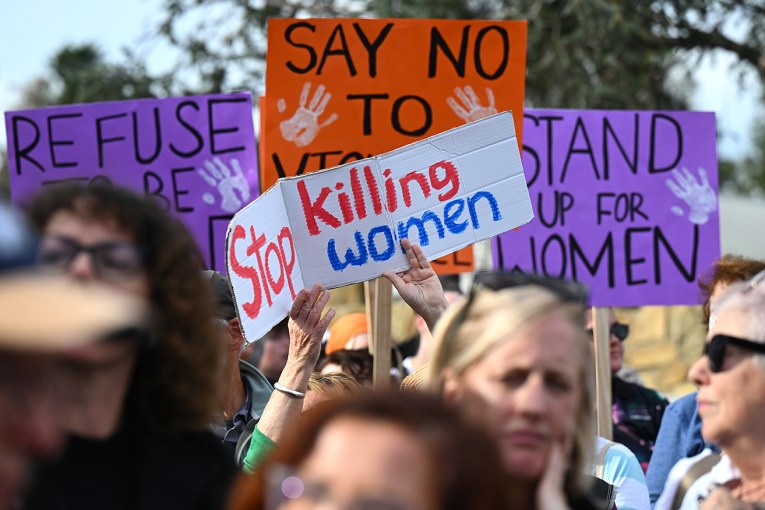Solomons Prime Minister Manasseh Sogavare is blaming foreign powers for an outbreak of unrest in the impoverished Pacific nation, but “won’t name names”, as Australian police and troops were deployed to help maintain calm.
Social media and news reports show crowds of protesters and burning buildings in the Chinatown district of the capital Honiara as protesters defied a lockdown in a second day of violence.
Mr Sogavare on Wednesday declared a 36-hour lockdown in Honiara and said the rioting was “another sad and unfortunate event aimed at bringing a democratically elected government down”.
He told the ABC that unnamed foreign powers were fomenting the unrest that had boiled over in recent days.
Underlying tensions over the Solomons’ decision to break diplomatic allegiances with Taiwan and switch to China in 2019 are believed to be bubbling beneath the surface of the latest troubles.
The initial group of protesters whose peaceful gathering escalated into violence were from the Malaita Province, the most populous of the Solomons, which is unhappy with the China connection.
Prime Minister Scott Morrison was adamant Australia was not taking sides in the internal conflict between the Solomon Islands’ government and opposition.
“We believe in their sovereignty and we believe in them being able to resolve these issues (democratically),” he said.
“Our purpose here is to provide stability and security.
“We have always been there to help our Pacific neighbours when they need us.”
Mr Morrison said the national security committee of cabinet had met just after he received a formal request for support from the Solomons Prime Minister.
Australian Federal Police left Australia for the Pacific island on Thursday, with army officers to follow on Friday.
The deployment, which is expected to last a few weeks, includes a detachment of 23 Australian Federal Police and up to 50 further AFP officers to provide security at critical infrastructure.
In addition, there will be 43 armed defence force personnel, a patrol boat and at least five Department of Foreign Affairs personnel.
Mr Morrison said protests had become disorderly and a high school, police station and leaf hut adjacent to the parliament had been torched.
“The situation remains volatile with reasonably large crowds on the move,” Mr Morrison said.
Australian police will help local authorities with riot control and defence force personnel will secure critical infrastructure like the airport.
China connection

Solomon Islands Prime Minister Manasseh Sogavare and Chinese Premier Li Keqiang
during a welcome ceremony at the Great Hall of the People in Beijing in 2019. Photo: Getty
Media reports said people had travelled from the Malaita province to the capital because of concern about being overlooked by the national government.
The province opposed a 2019 decision to end diplomatic ties with Taiwan and establish formal links with China, resulting in an independence referendum last year which the national government has dismissed as illegitimate.
As fresh protests broke out in Honiara, calling for the resignation of Mr Sogavare, assailants ransacked some businesses run by Chinese citizens on the island.
A Chinese foreign ministry spokesman said his government had conveyed its concern about attacks on businesses of Chinese citizens.
Foreign Ministry spokesman Zhao Lijian said China supported efforts to stop the riots that began on Wednesday, urging the authorities there to take “necessary measures to guarantee the safety of citizens”.
Mr Zhao said ties between China and the Solomon Islands had developed well in the last two years, making progress on “economy, trade, infrastructure and education”.
“Any attempt to disrupt the normal development of China’s relations with another country is useless,” he warned.
In September 2019, the Solomon Islands cut its official ties with Taiwan after maintaining relations with Taipei for 36 years.
Mr Sogavare’s government began diplomatic ties with China in September 2019.
-with AAP









